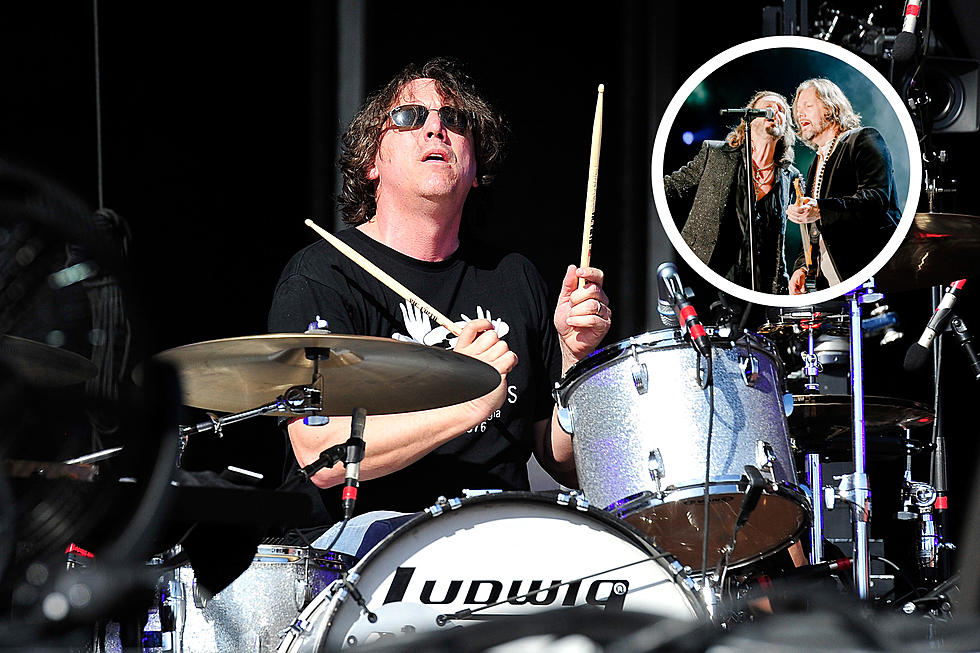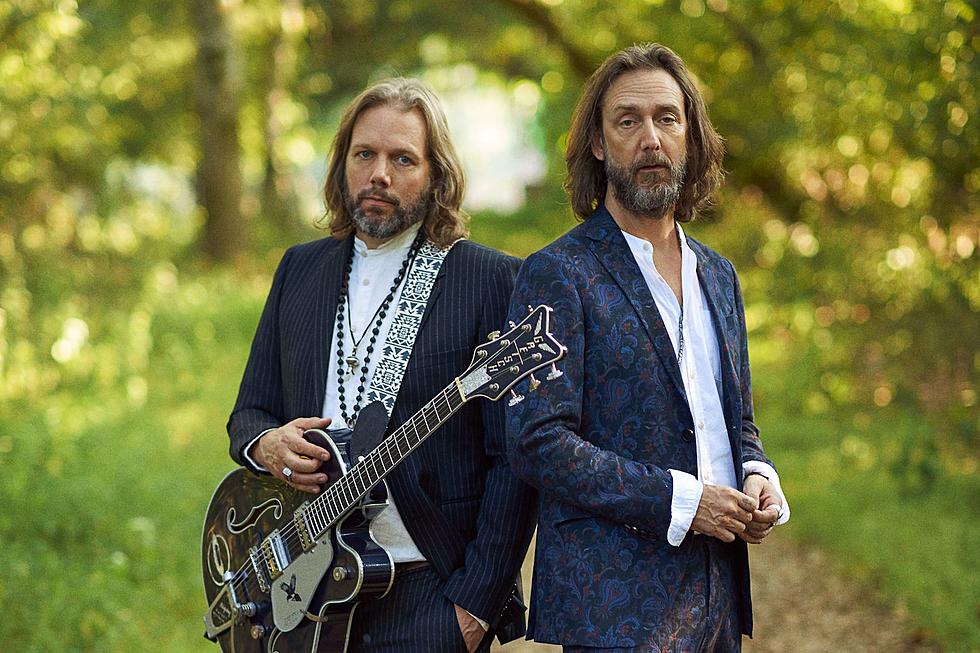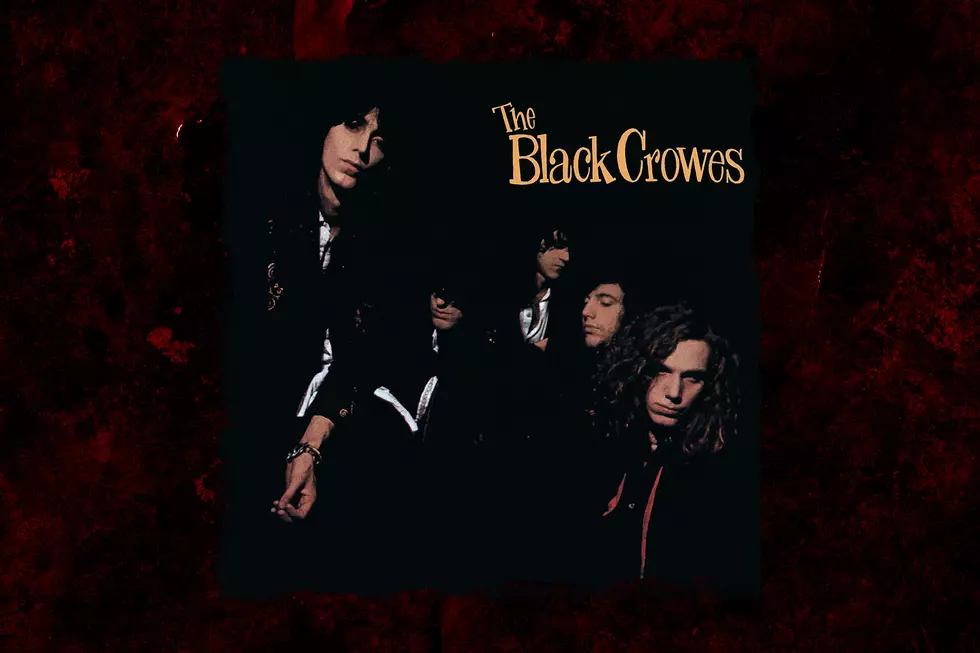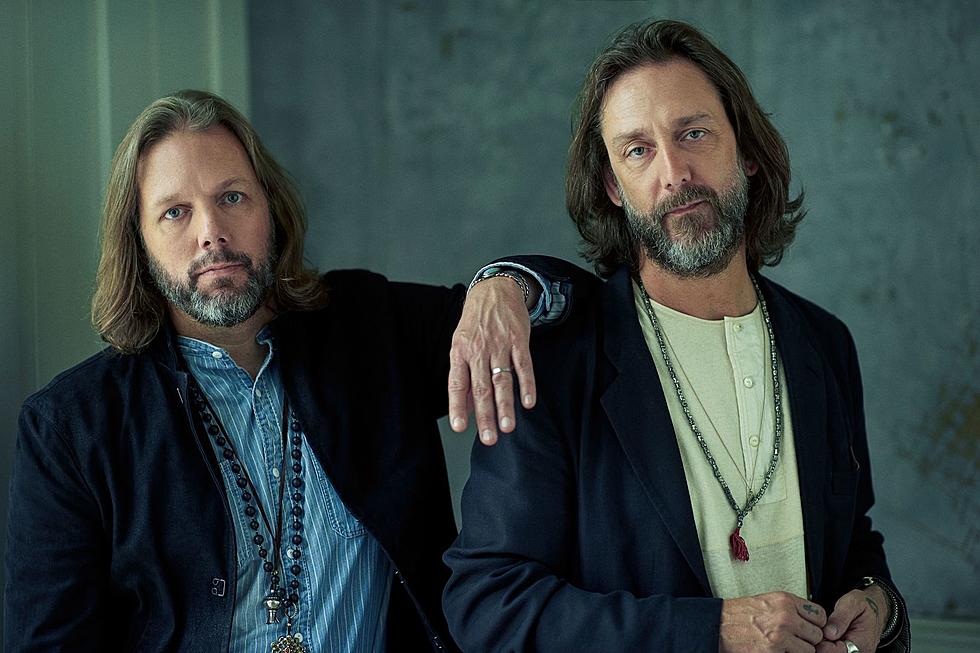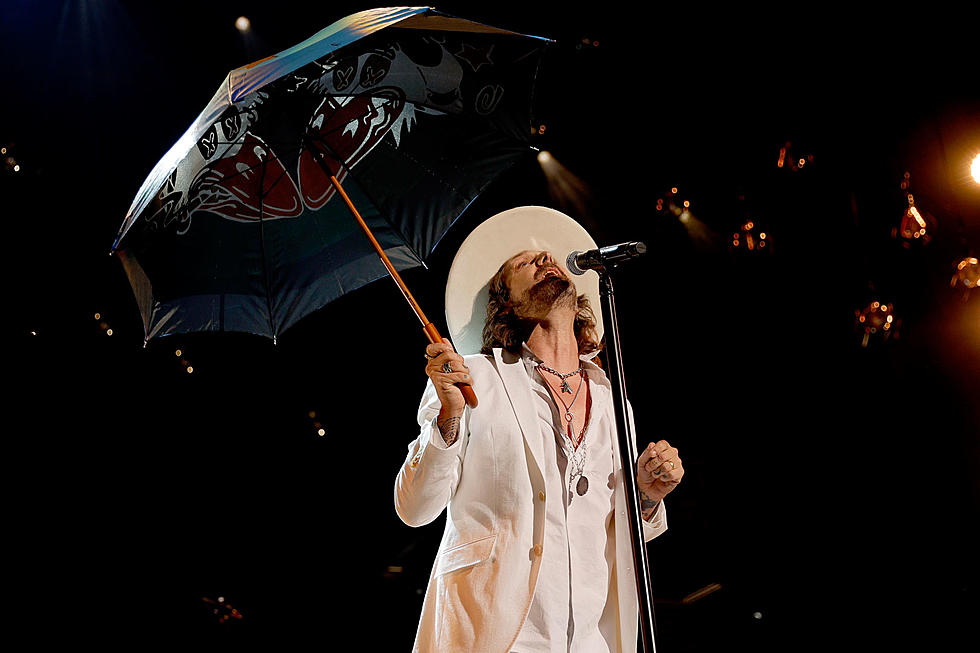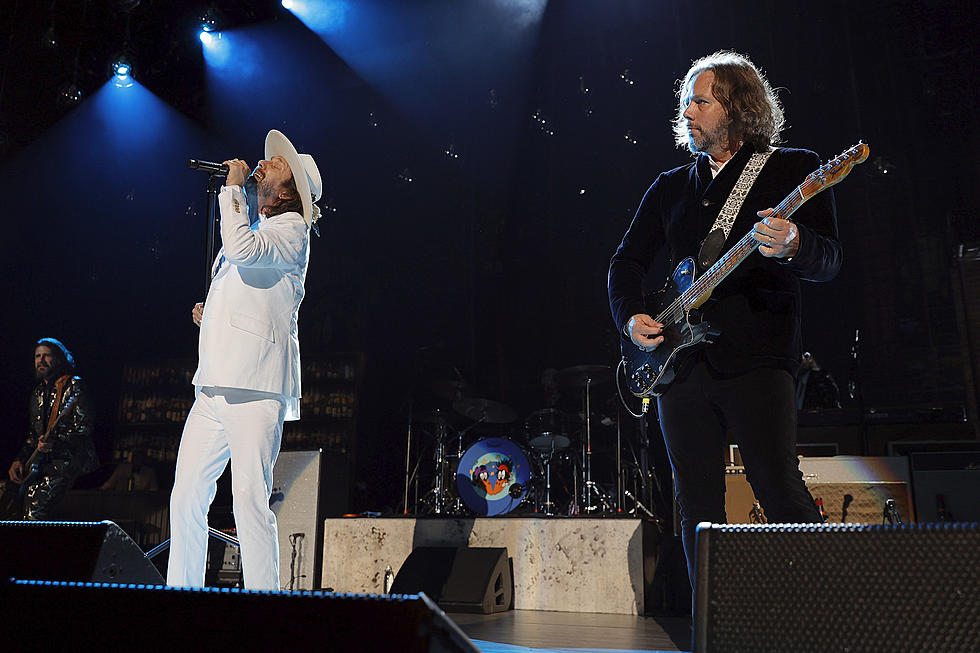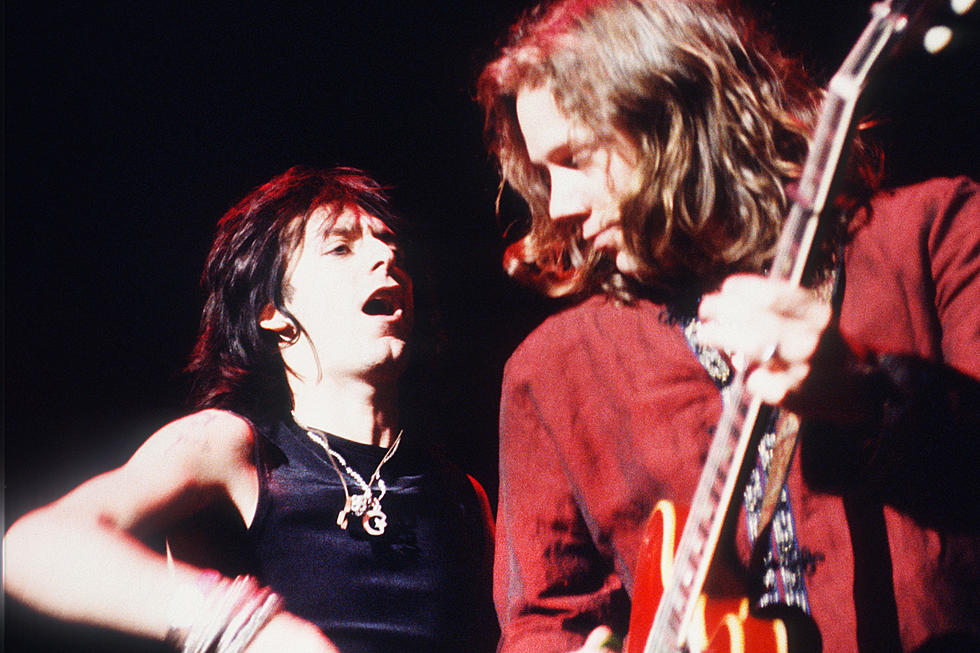
When the Black Crowes’ Sudden Hiatus Surprised Some of the Band
When the Black Crowes announced a hiatus on Jan. 8, 2002, the news took many fans and observers by surprise. But it took at least one of the band members by surprise, too.
A brief statement on the Southern rock band's website simply said it was taking a break, that singer Chris Robinson was embarking on a solo career and his guitarist brother Rich was planning his own project, while drummer Steve Gorman wouldn’t be returning.
Other observers were less startled, pointing to the evidence that the Crowes’ sixth album, Lions, had registered disappointing sales the previous year. It was also suggested that Robinson’s marriage to actress Kate Hudson had caused some changes. On top of that, the fact that the group’s lineup had changed six times in recent years pointed to an unhappy internal situation. Additionally, even though their latest road trip was titled the Tour of Brotherly Love – a lighthearted name since it also featured Oasis – the relationship between Chris and Rich had always existed on the same kind of knife-edge on which Noel and Liam Gallagher lived. Many believed the Crowes had shaken their moneymaker for the final time.
Beyond the rumor mill there were other arguments. Chris had recently described Lions as a breakthrough moment, telling Billboard: “[Producer] Don [Was] told us it takes a band 10 years to really find themselves, and he felt like we really found ourselves on this record. I hate to use these types of words, but this is like a new phase for us.” Asked about the state of relations between the Robinson brothers, a spokesperson pointed out that they’d spent Christmas together.
Perhaps cleverly, neither brother spoke much about the split at the time. Chris soon announced his solo project, New Earth Mud, while Rich unveiled the short-lived band Hookah Brown and later went solo himself. It was only after several months of silence that Chris confirmed he had initiated the Crowes split and that he made the decision at the end of the tour. “I was on the beach, and I realized I had no band, no manager, no record deal - nothing except these ideas and these songs that were laid out in front of me,” he told Billboard. “That was the most exciting thing in the world. It was solely put in my lap. I really had an opportunity to say, ‘This is how I feel.'”
He explained that he felt free without the expectations laid on him by the Crowes’ success. “If I wrote 15 new songs and wanted to go play them, we could book dates and just go play to the people who want to see it,” he said. “It’s great to do things because they’re special to me, not because they’re a commodity for someone else. I’m not interested in competing with what I’ve done. This is all about where I can go.” He also commented on working with his brother: “Although Rich and I could be very spontaneous and work, it was always filled with a lot of drama. I don’t think it benefits anyone to start to get precious over little things. It is about those moments when it’s happening and when you’re focused, and everyone is trying to do the best for that piece of music.”
In a separate interview, he admitted that "last Halloween, when I walked away from the last meeting, it was kinda like, 'Well, see ya when we see ya.' Since then some people have quit. I love the Black Crowes, and I love my brother. He's one of the most unbelievably talented people I've ever met. It has nothing to do with loving him. But change is inevitable. ... It's like any relationship: When it dissolves, no matter how it dissolves ... it's still raw.”
Whatever went on behind the scenes, it worked – the Crowes reunited in 2005 with a new lineup (although Gorman did return) and released their seventh album, Warpaint, three years later. It reached No. 5 on the chart. “We built this locomotive,” Chris told Rolling Stone around the time of the launch. “It’s sitting out in the field, with daisies growing through it. Let’s shine it up! The work was important to us. The work was the only fucking interesting thing going on. ... It’s incredible, the amount of quality shows we’ve done, the songs Rich and I have written, for two people who have a hard time being in the same room. I don’t think it has anything to do with love. Rich and I are doing this for ourselves.”
He revealed that he still didn’t know how Rich felt about the split, partly because “we don’t talk a lot anyway.” Rich, the quieter sibling, noted that he was "pretty blindsided. There were hints. But all of a sudden it was, ‘I’m not going to do this anymore. We’re going to call it a hiatus.’ I remember he said that.” They only started communicating again when Chris became a father in 2004 and called Rich the same day. “It was great to be an uncle,” the guitarist noted.
He observed that "outside of music, we probably would never speak to each other. That’s the way it is. … I’ve always been sensitive – oversensitive a lot of the time. My face is pretty stoic onstage. People say, ‘He’s an asshole. He looks angry.’ I’m literally just listening, trying to hear the whole band. If you’re stuck in a family with two brothers, it’s a pain in the ass. There are no sisters, just me and Chris. We are opposite spokes on a wheel. The hub is where we want to be.” Nevertheless, Rich celebrated the fact that working with Chris again brought them "a lot of joy." “There is harmony – literally. … Maybe Chris and I had something to work out from a past life. It would be nice if we knew each other and could just get along.”
The Robinsons continued to endure tumultuous times, announcing another “indefinite” hiatus in 2010 that turned out to be short-lived, then splitting in 2015 before another reunion with a new lineup in 2020. Speaking in 2008, manager Pete Angelus, who’d worked with the Crowes since 1989, offered an anecdote about the sibling tension at an early photoshoot. “I turn my back to talk to the photographer, [and] within three minutes a fistfight broke out," he said. "It was shocking, even to me. How could something escalate to that level in such a small amount of time? ... One thing that happens now that never happened when they were younger: They’ve learned that it may be worth walking away for a few minutes. … I will say, as a humorous note, in October 2007 there was a heated conversation in the tour bus. It escalated quicker than I expected. And I remember going, ‘OK, that’s enough. Because somebody just kicked me in the testicles.’ I happened to be in the middle.”
Top 50 American Bands
More From
